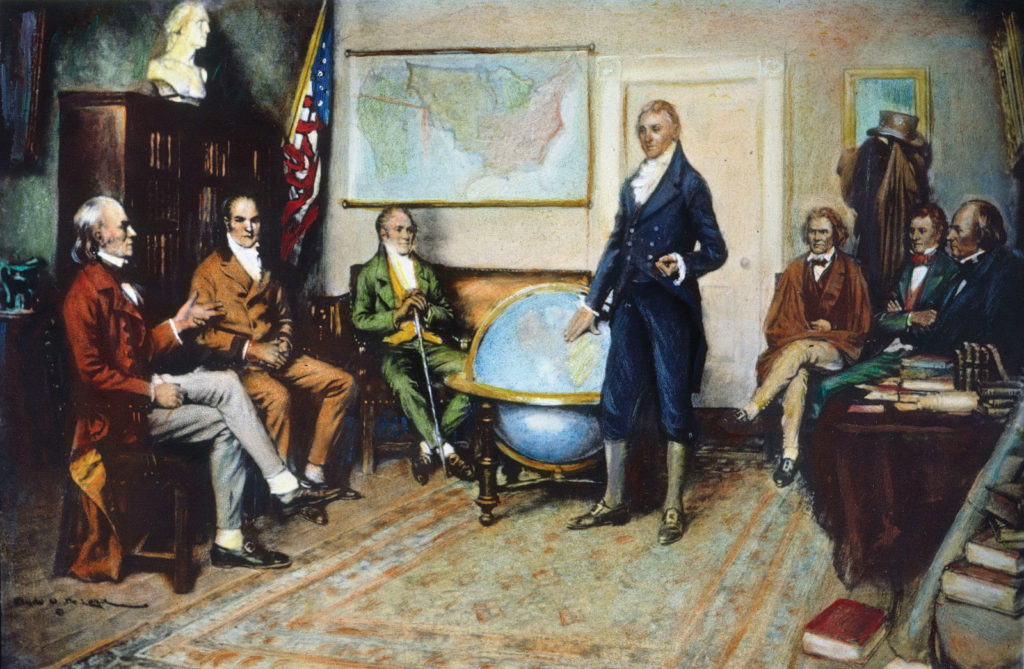
*The Birth of the Monroe Doctrine by Clyde O. DeLand. Image Courtesy of The Granger Collection.
On December 2, 1823, James Monroe’s annual address to Congress included a statement that later became enshrined as the Monroe Doctrine. This presidential message warned imperial nations against interference in the Western Hemisphere while also promising that the United States would not intervene in European issues. This meant no more colonies and no more military aggressions and offered a protection of new American republics against the return of rule by monarchies. Since 1823, the Monroe Doctrine has been used in many contexts, far beyond what Monroe imagined, and has been invoked to summarize U.S. foreign policy.
To examine the long reach of the Monroe Doctrine on its 200th anniversary, Highland hosted or participated in several virtual and in-person events. Recordings of the virtual programs can be found below:
“This Sets Our Compass”: The Making of the Monroe Doctrine
Highland welcomes Tim McGrath, author of James Monroe: A Life, for a virtual program: “This Sets Our Compass”: The Making of the Monroe Doctrine. Through the lens of biography, McGrath will discuss the personal and political events leading to the 1823 announcement of what became the Monroe Doctrine.
Spheres of Influence: Two Hundred Years of the Monroe Doctrine
Hosted virtually and at The McGowan Theatre at the National Archives, the program Spheres of Influence: Two Hundred Years of the Monroe Doctrine features a panel of scholars who discuss the history as well as the current use of the best-known U.S. policy toward the Western Hemisphere. Highlighted in an otherwise routine annual message delivered to Congress by President James Monroe in December 1823, the doctrine warned European nations that the United States would not tolerate further colonization or puppet monarchs in the Western Hemisphere. Sara Bon-Harper, Executive Director, James Monroe’s Highland and Scott H. Harris, Executive Director, University of Mary Washington Museums, lead the discussion of the three main elements of the Monroe Doctrine: non- colonization, non-intervention, and separate spheres of influence for the Americas and Europe. This program was presented in partnership with James Monroe Museum and James Monroe’s Highland.
A Latin Americanist’s Reading of the Monroe Doctrine, 1823-2023
Highland welcomes James Madison University professor Dr. Kristen McCleary, for the virtual program: A Latin Americanist’s Reading of the Monroe Doctrine, 1823-2023. This talk highlights the Monroe Doctrine’s explicit connections to Latin America. In particular, it examines the way the Monroe Doctrine was given meaning through cultural expressions both from the US and Latin America, including Cuban José Marti’s essay Our America (1892), William Dieterle’s film Juárez (1939) and Americo Paredes’ novel George Washington Gómez (1990), among others.
Are you interested in learning more about the Monroe Doctrine and the fifth president of the United States? Purchase your tickets today at https://highland.org/plan-your-visit/tours-and-tickets/.
